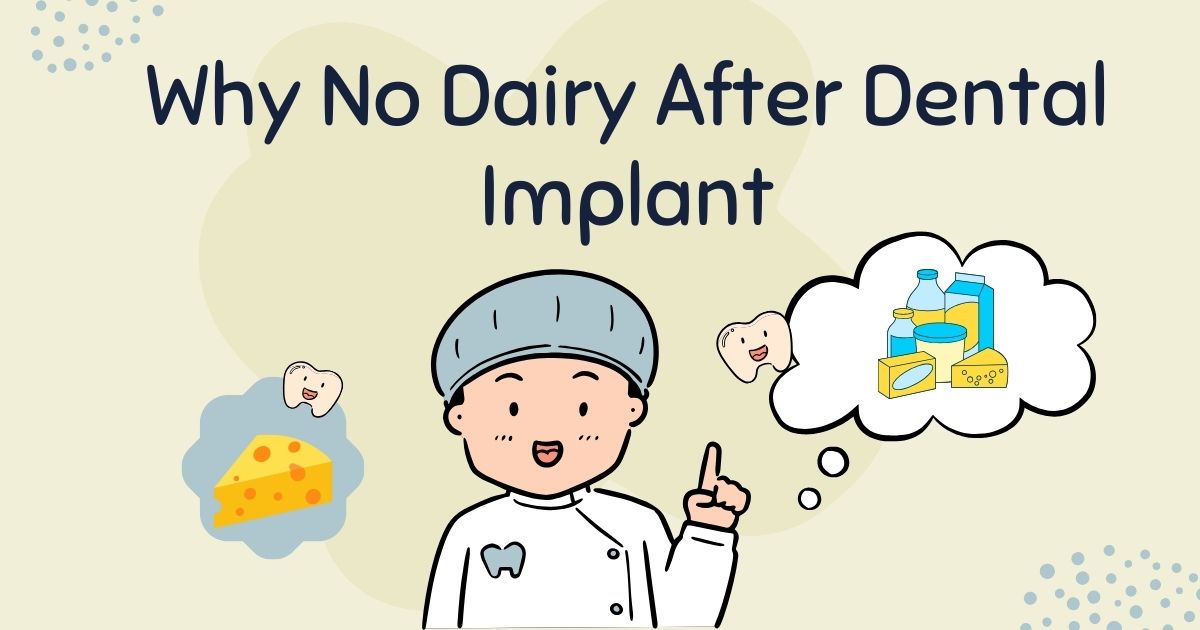Dental implant surgery is a significant step toward restoring your smile and oral health. Following your dentist’s post-operative care instructions is crucial for ensuring successful healing. One common recommendation is to avoid dairy after dental implant surgery, and here’s why this precaution is often necessary.
Dairy and Post-Surgery Nausea
After dental implant surgery, you might be prescribed antibiotics or painkillers. Consuming dairy products like milk or cheese alongside these medications can sometimes trigger nausea or an upset stomach, making recovery more uncomfortable.
Potential Inflammation
Dairy products, particularly whole milk or cream, are thought to exacerbate inflammation in some individuals. While research on this is limited, avoiding potential inflammatory foods immediately after surgery can be beneficial for reducing swelling and discomfort.
Increased Mucus Production
Dairy is known to stimulate mucus production in some people. Excess mucus can cause throat irritation and make it harder to manage breathing or swallowing, which may indirectly affect comfort during recovery.
Risk of Infection from Certain Dairy Products
Soft or unpasteurized dairy products, like some cheeses, can carry bacteria. Introducing bacteria into the body post-surgery could increase the risk of infection at the surgical site, potentially delaying healing.
Gum Irritation from Lactic Acid
Fermented dairy products, such as yogurt, contain lactic acid, which may irritate sensitive gum tissue around the implant area. This irritation can prolong the healing process and cause unnecessary discomfort.
Supporting a Healing-Friendly Diet
Avoiding dairy encourages patients to focus on soft, bland, and non-acidic foods like mashed potatoes, applesauce, and broths. These options are gentle on the healing site and reduce the risk of irritation or complications.
Conclusion
While dairy is generally nutritious, its potential to cause nausea, irritation, or increased mucus production makes it less ideal immediately following dental implant surgery. Once your dentist confirms the surgical site has healed, you can gradually reintroduce dairy into your diet. Always consult your dental professional for personalized advice.
FAQs
1. How long should I avoid dairy after a dental implant?
Most dentists recommend avoiding dairy for the first 48-72 hours post-surgery, but follow your dentist’s specific instructions.
2. Can I drink dairy-free milk instead?
Yes, plant-based milks like almond or oat milk are excellent alternatives and pose no risk to your recovery.
3. Why does dairy cause nausea with medication?
The combination of dairy with certain antibiotics or painkillers can irritate the stomach lining, leading to nausea or an upset stomach.
4. Can I eat cheese after dental implant surgery?
Soft cheeses should be avoided immediately post-surgery, as they may irritate the gums or increase the risk of infection.
5. When can I safely reintroduce dairy into my diet?
You can usually reintroduce dairy after a few days, once your dentist confirms that the initial healing phase is complete.

